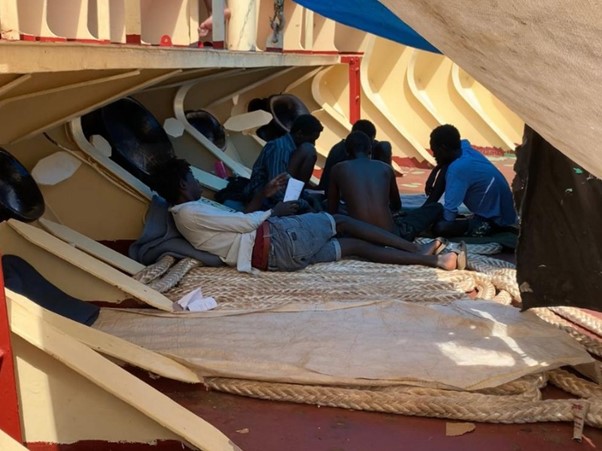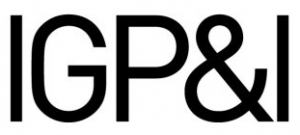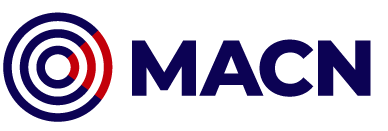
Migrants continue to put their lives at risk to make their way across the Mediterranean to Europe in hope of a better future. The small boats are crowded with people. Often the rafts are in bad condition on the verge of sinking. Fortunate migrants are rescued by merchant vessels or by Non-Government Organizations (NGO) vessels. An unknown number of migrants do not make it - they drown at sea. The situation is a human tragedy which needs to be addressed on the political level, but it is also represents a major problem for shipowners as experienced by our member Maersk Tankers A/S.
Written by
Published 07 October 2020
The rescue
On 4 September 2020, the 37,000 DW Danish flag tanker Maersk Etienne was on route to La Skhira, Tunisia when she was requested by the Rescue Coordination Centre Malta to change course to assist a small migrant boat in distress. The boat with migrants was located outside Maltese waters closer to the Tunisian-Libyan border. On arrival, the Maersk Etienne provided a ‘lee’ to the boat, awaiting instructions. The weather deteriorated and the situation soon became critical for the migrants. With no time to spare, the Maersk Etienne picked up the 27 migrants. Shortly thereafter, the small boat sank. The Maersk Etienne had honored its obligations under SOLAS and saved the lives of the migrants.
The 27 migrants were in apparent general good health condition. There were 26 men and one woman. She was pregnant. The migrants were provided with shelter, blankets food, water, and other necessities.

The Maersk Etienne commenced proceeding to Malta, however, was refused permission to enter Maltese waters. The vessel then anchored outside Maltese waters to await clarification with respect to the country and port of disembarkation. Lawyers and local P&I correspondents were appointed in both Malta and Tunisia to assist with getting permission to disembark the migrants in either of these countries.
The efforts to disembark the migrants
Despite considerable efforts including discussions on a high political level between Denmark and the two respective countries it turned out to be very difficult to convince either country to accept the migrants for disembarkation. Regulations such as UNCLOS and SOLAS place complementary obligations on ships and coastal states to ensure the rescue of persons in distress at sea, regardless of their nationality, status, or circumstances in which they are found, and disembark them in a place of safety as per instructions received from the search and rescue (SAR) authority coordinating the SAR operation. Nevertheless, both countries refused to allow disembarkation. Due to the difficulties experienced Maersk Tankers also explored the possibility of having the migrants transferred to one of the NGO vessels operating in the Mediterranean. It was not an option for either Maersk or Gard to disembark the migrants in a country or port that was considered unsafe.
A media campaign was also launched in the hope that this would put the necessary pressure on the respective authorities to allow disembarkation. Unfortunately, this did not have quite the effect everyone was hoping for. However, some two weeks after the migrants were rescued The Office of Maltese Prime Minister made a concession to the Danish Government to have the migrants travel out of Malta by air. This offer was conditional on the fact that a plane be readily awaiting to depart from Malta immediately after the migrants were brought to shore and escorted to the airport, such that there would be no material waiting time by the migrants in Malta. Whilst, in itself positive, the question arose regarding the destination for such possible flight, taking into consideration that there were 27 people of at least five different nationalities and without papers.
As time went by, without any solution in sight, the possibility of disembarking the migrants in the vessel’s flag state, Denmark, was discussed. This would represent a significant diversion as the ship’s next destination was Benin. Proceeding toward Denmark did not represent an attractive solution especially if confirmation was not received beforehand that the migrants would be allowed to disembark. The migrants became more and more desperate to the point where three of them jumped overboard. Fortunately, they were safely rescued by the Maersk Etienne crew for the second time and rejoined the rest of the group.
The matter was only resolved on 11 September 2020 when the migrants were transferred to the migrant rescue ship Mare Jonio, operated by NGO Mediterranea, and were subsequently safely disembarked in Italy.
A permanent solution will require international cooperation and compromise
This case illustrates the challenges that our Members may still face nearly a decade after the number of migrants in the Mediterranean started to increase. Countries like Greece, Italy and Spain have, due to their location, typically been exposed to a very large number of migrants and camps have been built to accommodate the migrants while they wait for a decision to be made with respect to their further destiny. Due to the high number living in the camps and the difficulties having other European countries accept a reasonable share of the migrants, the Mediterranean countries have not surprisingly become more reluctant to allow disembarkation.
In the wake of the Maersk Etienne case a number of shipping-related associations have recently sent a joint letter to the EU’s top politicians including president Ursula Van der Leyen to urge the EU to provide prompt and predictable disembarkations for people rescued at sea. The present difficulties in having migrants disembarked may tempt some ships to turn a blind eye. This is of course something that should be avoided at all costs and which could result in very heavy fines being imposed. Fortunately, no such cases have been reported to us.
The recent fire at the Moria migrant camp in Greece, has triggered renewed discussion on how best to share the burden and allocate migrants to other European countries. In this connection the Dublin Convention seems to have been put on the agenda because the convention is considered by some countries to be preventing a fair solution. However, reaching agreement for a new migrant plan for the EU countries is expected to be a difficult task involving a number of compromises.
In the meantime, our Members continue to face challenges in connection with rescue of migrants. They do of course abide by their duty to rescue persons in distress at sea. However, in most migrant cases difficulties are experienced with respect to disembarkation. The Maersk Etienne remained idle for some 38 days before the migrants were transferred to Mare Jonio and she was able resume her original voyage. Needless to say, such a situation may not only be a costly experience for our Member but also put them in a potentially difficult situation by not being able to fulfill their contractual obligations and other commitments.
We can only hope that a political solution can soon be agreed which will improve the situation both for the migrants and the shipowners. We are proud to have assisted our member Maersk Tankers in the humane treatment of the migrants rescued and cared for by the crew of the Maersk Etienne.
A word about P&I cover
In cases involving the saving of life at sea, P&I Cover responds to the extra costs of maintaining those rescued on board, for example, food and medication, and it covers diversion expenses to disembark them but it does not cover loss of hire or other financial losses like loss of profit. For additional information on P&I cover clarification see our article Refugee rescue – P&I cover and assistance while that article was specific on refugees, the details relating to cover are equally applicable to migrants. To further ease the Member’s burden, the deductible *“can be waived by the Association in its sole discretion on as case by case basis where the Member has incurred the relevant costs and expenses due to rescuing or attempts to rescue migrants, refugees or other people at sea.” *
We commend our Member, Maersk Tankers, for their humanitarian efforts and thank them for their input into this article.





